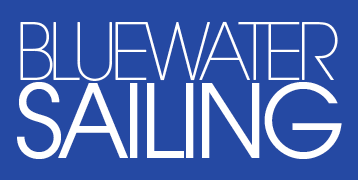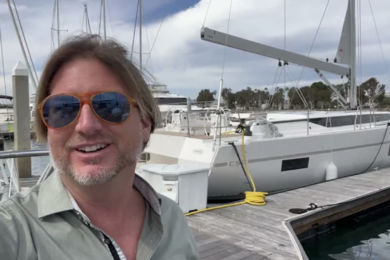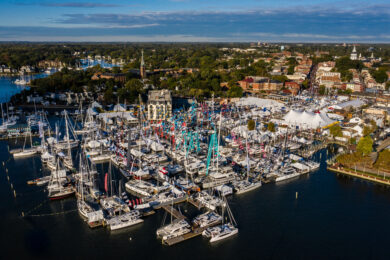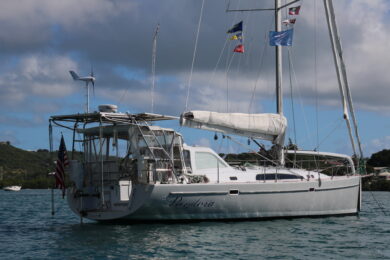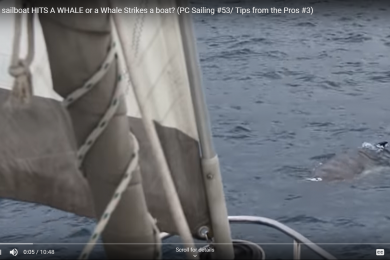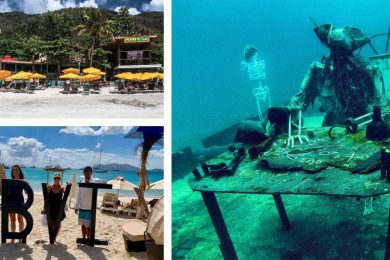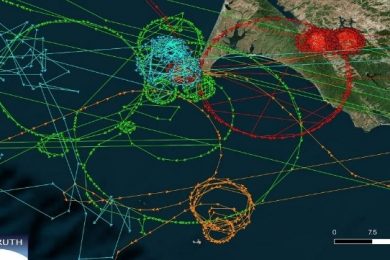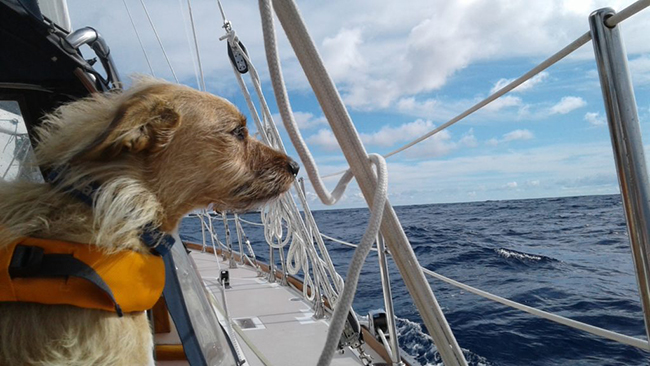by Hank George, President, SDSA and Bruce Rabun
Closing a Country’s Borders – Be Aware
Retired attorney Bruce Rabun has assisted me in providing this summary. We plan to provide a more detailed paper in the near future.
Many cruisers are familiar with the term “Right of Innocent Passage” and interpret that to mean as long as they are not stopping at a particular country, they may pass through territorial waters without having to clear in. While the rules are a little more specific than that, there is a fair amount of misunderstanding about that “right.” And, there is substantial variation in how that right and the authorized exception to that right are applied around the world. We will try to provide a summary of this area for the benefit of cruisers.
The right of innocent passage was codified in the United Nations Convention on the Law of the Sea (UNCLOS III), also known as the Law of the Sea Treaty. The term Passage means navigation through the territorial sea for the purpose of traversing that sea (a) without entering internal waters or calling at a roadstead or port facility outside internal waters; or (b) proceeding to or from internal waters or a call at such roadstead or port facility. The Passage must be continuous and expeditious. However, passage includes stopping and anchoring, but only in so far as the same are incidental to ordinary navigation or are rendered necessary by force majeure or distress or for the purpose of rendering assistance to persons, ships or aircraft in danger or distress. Under Article 19 of the UNCLOS III, “Passage is innocent so long as it is not prejudicial to the peace, good order or security of the coastal State.”
The right of innocent passage of foreign vessels through the territorial waters of a coastal state is one of the oldest and most universally recognized rules of public international law. UNCLOS III specifically states that States “…shall not hamper the innocent passage of foreign ships through the territorial sea except in accordance with this Convention. UNCLOS III stipulates that a State may, without discrimination in form or in fact among foreign ships, suspend temporarily, in specified areas of its territorial sea the innocent passage of foreign ships if such suspension is essential for the protection of its security, including weapons exercises. Such suspension takes effect, according to the same article, only after having been “duly published.”
One could envision that the protection of security might include a perceived health risk to the lives of their citizens. That is what was done this past spring by many countries fearing the risk of transmission of Covid-19 by persons entering their country. Many countries have provisions in their Constitutions by which they can declare a National Emergency, an Emergency Order or in some cases Martial Law, which among other things includes closing of borders.
So, what should cruisers do? Our advice is the following: first is to recognize that countries are within their right to suspend the Right of Innocent Passage, there is no over-riding International law that prohibits it; cruisers should be aware of any current restrictions in a country they may choose to visit; and cruisers should honor and respect these restrictions instead of challenging them. Also be aware you can run into officials that over-step their bounds in times of significant concerns, and your legal opportunities and judicial exercise of discretion may not be what you are used to back home. The message below relates to one recent example of this.
All of these cautions are what SDSA did for the Homeward Bound Flotilla this past spring. SDSA provided the fleet with warnings of countries with closed borders and the extent of their territorial waters. And, we assisted in filing exception requests for safe passage with several countries to help vessels make emergency stops or take advantage of more direct routes to the US for vessels with short-handed crew. These times of tight restrictions and the need for extra caution by cruisers are still with us.
_________________________________________________________________________________
(The following is from a 12-4-20 posting on the SDSA Facebook Page about an incident with the s/v Marie Elena being detained for about 10 days and fined by the BVI, when they innocently entered BVI waters while sailing in the USVI.)
Good morning, and good news! You may have seen the report that captain Nick Cancro and crew of the Marie Elena have finally been released from their detention in the BVI, and arrived back in St. Thomas, USVI yesterday afternoon. They were released after pleading guilty and paying a fine of $1,000 per person for the 4 persons aboard. Nick’s comments to me are that he appreciated the support from the sailing community, was glad to be back in the USA, and wants to make sure all sailors are aware of the tight restrictions and enforcement by the BVI for vessels that (even accidentally) venture into their waters. I would add that all cruisers need to be cautious of such restrictions anywhere else in the world as well. The SDSA will get a more detailed notice out on this shortly. — Hank George, SDSA President
Salty Dawg Sailing Association
